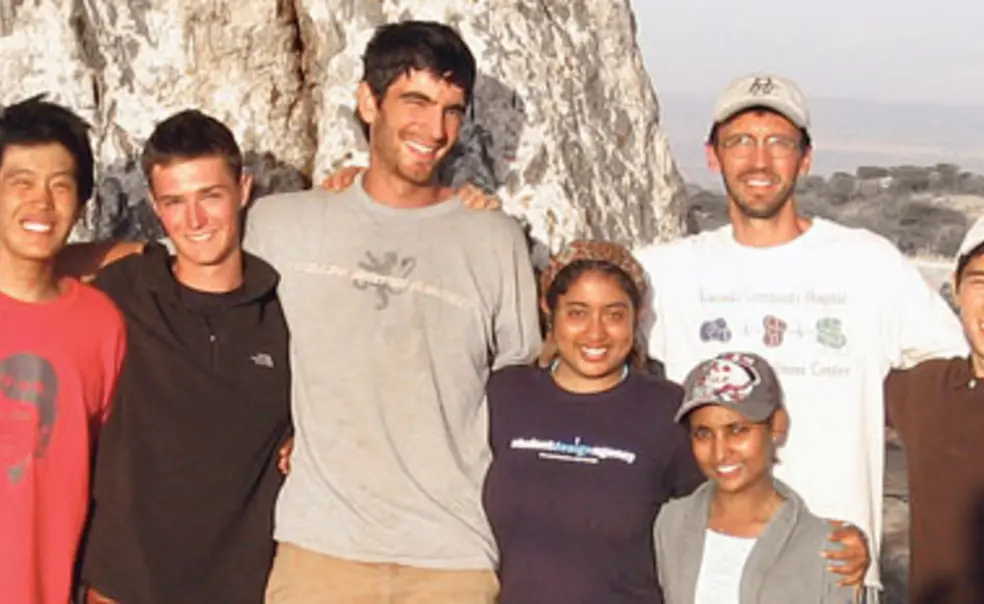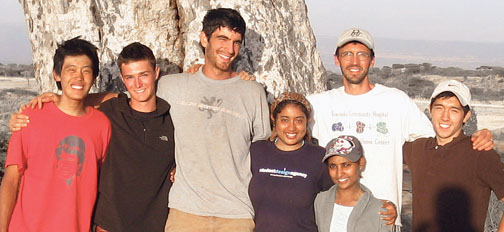Solving water-supply woes in a small Ethiopian town
In late December, six students from Princeton’s Engineers Without Borders chapter installed a solution to Kumudo’s water woes. The villagers now can use two treadle pumps, which look like rudimentary Stairmasters, to draw water some 50 feet up the ravine through a 2-inch-wide pipe and into two holding tanks.
While installing the pumps was a relatively simple engineering task, there were notable challenges during the two-week project, including finding the right supplies to join the water pipes with the pumps. Common parts that would cost a few dollars at any Home Depot tend to be scarce in rural Ethiopia, said Neal Yuan ’10, co-president of EWB-Princeton. The team came up with a durable solution, after days of experimenting, by using rubber seals purchased at a bathroom-supply shop. When water first flowed into the tanks, ecstatic cheers erupted from both the students and the villagers.
“The people who had been working alongside of us saw the problems that we had been having,” Yuan said, “and I think they were just as happy that we had come up with a solution as we were.” Both groups celebrated by taking turns pedaling the pumps.
EWB trips, Yuan said, offer an unusual combination of on-the-fly problem solving, preprofessional training, and cultural immersion. In Kumudo, students were welcomed as guests of honor at a special meal with village elders. They fell asleep to the cackle of hyenas in the distance and woke at sunrise to begin working in relatively cool temperatures.
Kumudo is one of three project sites for the five-year-old EWB-Princeton chapter, which also has worked in Peru and Ghana. Each EWB project starts with an assessment, in which two or three students and a professional engineer talk with people in the host community about their needs. The students survey the project site, gather data, and return to campus to begin plotting out their work.
Twenty or more students may help to plan a project, but less than half of the team travels for the implementation — partly for budgetary reasons, but also to avoid overburdening the host community. EWB-Princeton has received University grants to cover nearly all of its costs for travel and supplies.













No responses yet